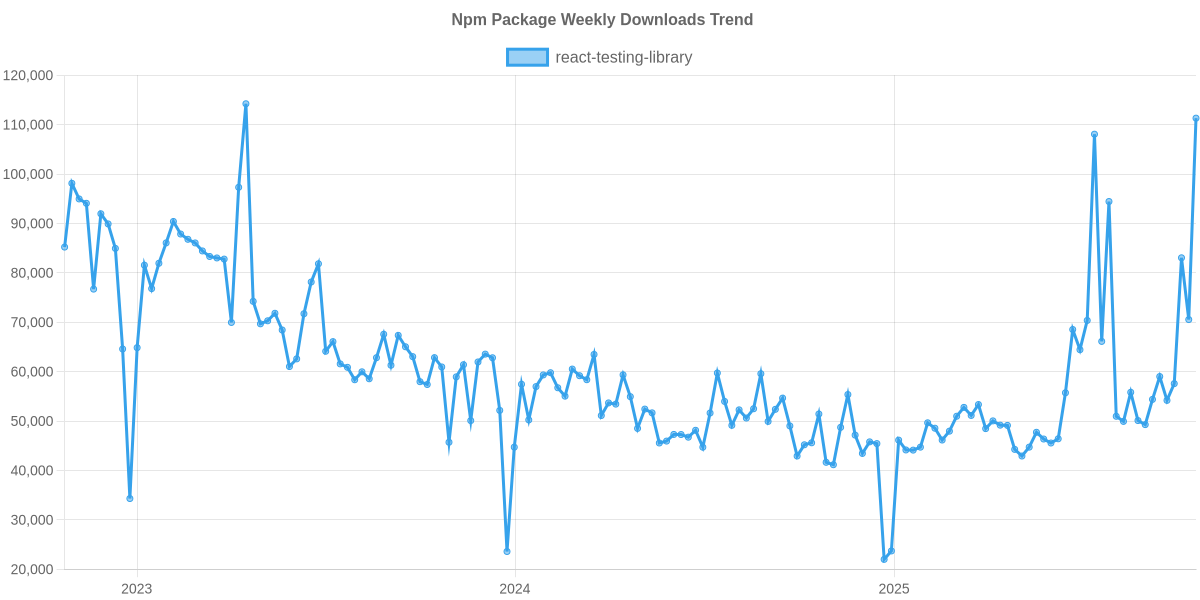🌟 Show real-time usage chart on react-testing-library's README.md, just copy the code below.
## Usage Trend
[](https://npm-compare.com/react-testing-library#timeRange=THREE_YEARS)
🌟 Show GitHub stars trend chart on react-testing-library's README.md, just copy the code below.
## GitHub Stars Trend
[](https://npm-compare.com/react-testing-library)
Stat Detail
Package
Downloads
Stars
Size
Issues
Publish
License
react-testing-library
69,930
-
-
-
7 years ago
-
Popular Comparisons
react-testing-library
README for react-testing-library
react-testing-library has moved to @testing-library/react. Please uninstall react-testing-library and install @testing-library/react instead, or use an older version of react-testing-library. Learn more about this change here: https://github.com/testing-library/dom-testing-library/issues/260 Thanks! :)